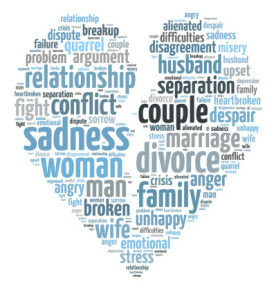How to deal with AffairsWhat you need to know about affairs and how affairs can affect relationships. Affairs can be thrilling, invigorating, exciting and romantic, and on the other side can also be painful, damaging, hurtful and disastrous. No matter how you go about it, having an affair will for sure hurt someone and in most cases will hurt all parties involved including any children. Some affairs of course end happily for the couple. Plenty of good second marriages began as affairs. But in most cases extramarital liaisons don’t become permanent relationships and leave a path of devastation. So, starting an affair is not a brilliant step to take – and yet people do it all the time. Some pressures make affairs more likelyPeople who live apart from their partners several days a week, work long hours, battle job stress and watch their back in case someone puts a knife in it. Such pressures create a ‘hothouse’ atmosphere; perfect conditions conducive to affairs developing. People face different but equally significant pressures, for example, financial stress. However, pressure is only one of the motivating influences which may lead someone towards having an affair. Values play a part tooBeliefs and values act as little voices in our heads which throw a green light to proceed or a red light to say, “no, don’t do it”. The level of contentment you feel with your relationship may be the deciding factor in determining to remain loyal to your partner or to take a step back from your commitment to them. The damage affairs can doHowever, affairs injure relationships because, for most couples, they breach an important agreement and destroy the trust which couples have built their commitment on. Affairs, when exposed, unleash an ‘emotional twister’, which creates havoc for those involved in the most unimaginable way. Understandably, such relationship injury leads people to walk away from their partner. Many carry on however, flooded with shame, anger and outrage, which they seemingly have no control over. Others find themselves living in an emotional void bereft of the love and closeness they once felt in their partner’s company. The choices you faceCouples experiencing this relationship injury are left with three main choices: to separate, to stay the same or to rebuild their relationship.Separation is a reasonable response to an awful situation.More about this topic in another article (see left hand column). Staying the same is a less helpful choice but no less understandable. Feeling hurt may make you want to leave. However leaving a partner who you have loved, a lifestyle, home etc can feel like a huge step. Steps for rebuilding your relationship after an affairRebuilding your relationship, even though it may feel like a hard choice at the time, has worked for many couples. Those who have chosen to rebuild their relationship after an affair have found the following steps useful: 1. Gain support from people you trust. Stay away from those who have their own agenda about your leaving or staying in the relationship (unlike Parliament). 2. If the emotions are running high between you and your partner, give yourself an emotional break. Discuss the affair and its associated emotions at set times, for example, with your couple counsellor. At other times, talk about how you feel with the people you can trust or contact a Help Line. 3. Be clear with your partner about what is acceptable and unacceptable in your post-affair relationship. 4. Put your hurt on the table and be clear about the impact of the affair on the relationship. 5. Gain assurances from each other and make a commitment to work on your relationship (this commitment may take place within a set timeframe, for example 12 weeks) 6. Examine (without blame) what led to the affair and deal with the issues raised. 7. Develop a vision for your relationship and take steps to achieve it. 8. When you are ready (perhaps within a 3 to 6-month timeframe) look towards completing an act of forgiveness. 9. Give trust time to build. Judging others for having an affair is tantamount to saying “I don’t understand you”. We can’t really stand in another person’s shoes and know their motivations with any certainty. In addition, how can we judge when so much more could be done to support healthy relationships.
0 Comments
Your comment will be posted after it is approved.
Leave a Reply. |
Categories |
Relationship Services | 0800 RELATE (735283) | M8TZ Crisis & Relationship Services



